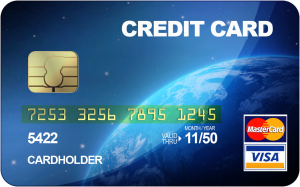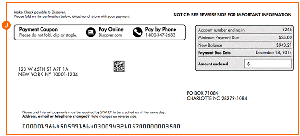Fake Credit Card Statements Services:
Fake Credit Card Statements: How to hide your naughty purchases made on your credit card statement? Everything you charge on your credit card is listed on your credit card statement. So how can you keep your purchases private? While your credit card statements can be a great way to keep track of your purchases. This can make it difficult if you’d rather keep some of your credit card purchases private. Let’s say you share a bank account with your partner or you look at each other’s bank statements or credit card statements to keep track of your expenses, but there are some purchases that you’d rather keep to yourself.
If you’ve ever found yourself in this situation, we can help you with that. You can get your credit card statements edited before your partner get their hands on them. We can remove all the purchases from your credit card statement which might hurt your relationship. We can edit the amounts of the purchases you made so your partner doesn’t go all crazy about the expensive shoes you bought.
Or else you can just pretend that the credit card statement is of somebody else’s by asking us to edit the name and address on the statements so you can buy some time to arrange the extra money you spent through your credit card.
Fake Credit Card Statements
Fake Credit Card Statements in USA
Scanned Fake Credit Card Statements
Creation Fake Credit Card Statements
Changing Fake Credit Card Statements
Fake Credit Card Statements Name Editing
Fake Credit Card Statement Address Editing
Please contact us on WHATSAPP or start a LIVE CHAT session before placing any order. You can also give us a call at +1 914 (202) 3836
A credit card statement is a monthly or periodic document provided by your credit card issuer that summarizes your account activity. It details:
- Transactions: Purchases, payments, cash advances, and fees made during the billing cycle.
- Balance: Total amount owed, including any carried-over balance from the previous cycle.
- Minimum Payment Due: The smallest amount you must pay by the due date to keep your account in good standing.
- Due Date: The deadline for making at least the minimum payment.
- Interest Charges: Any interest accrued on unpaid balances, based on your APR (Annual Percentage Rate).
- Credit Limit: The maximum amount you can borrow.
- Available Credit: The remaining credit you can use.
- Rewards or Cashback: If applicable, any earned rewards or points.
It’s typically sent via mail or available online and helps you track spending, manage payments, and spot errors or fraud. Always review it carefully.
How to Verify Legitimate Bank Statements
If you’re receiving or providing bank statements, ensuring their authenticity is crucial. Here are some steps to verify legitimate bank statements:
- Request Official Documents: Always ask for statements directly from the bank, either in hard copy or via secure online banking portals.
- Check for Tampering: Look for inconsistencies in fonts, logos, or formatting that may indicate edits.
- Contact the Bank: Verify the statement’s authenticity by contacting the issuing bank directly.
- Use Digital Signatures: Many banks provide digitally signed PDFs, which are harder to forge.
- Hire Professionals: For high-stakes transactions, consider hiring forensic accountants or document verification services.
Ethical Alternatives to Editing Bank Statements
If you’re facing financial challenges, there are ethical ways to address them without resorting to fraud:
- Communicate with Lenders: Many lenders offer hardship programs or flexible repayment plans.
- Seek Financial Counseling: Nonprofit organizations provide free or low-cost financial advice to help manage debt or improve credit.
- Build Genuine Credit: Focus on improving your financial standing through budgeting, saving, and responsible borrowing.
Why Editing Bank Statements is a Risky Practice
Editing bank statement PDFs to create false financial records is not only unethical but also illegal in most jurisdictions. Fake bank statements are often used to deceive lenders, employers, or other entities, but the consequences can be severe, including legal action, financial penalties, and damaged reputations.
This article explores the dangers of editing fake bank statements, why authenticity in financial documentation matters, and how to verify legitimate bank statements safely.




